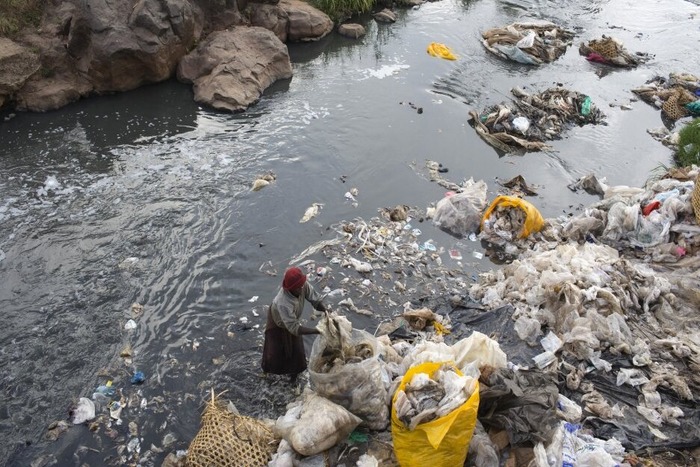
Environmental Impact of Plastic Bags

The increasing use of plastic bags has raised serious environmental concerns worldwide. While they offer convenience, their long-term impact on ecosystems and human health cannot be ignored. Understanding the detrimental effects of plastic bags can help in making informed choices that contribute to a healthier planet.
The Environmental Cost of Plastic Bags
Plastic bags are derived from petroleum-based polymers, which require significant energy to produce. Their manufacturing process contributes to carbon emissions, further accelerating climate change. Once discarded, plastic bags take centuries to decompose. In the meantime, they accumulate in landfills, clog water bodies, and pose threats to marine and wildlife. Many animals mistakenly consume plastic, leading to fatal consequences. Turtles, for instance, often mistake floating plastic bags for jellyfish, their primary food source. Similarly, birds and other wildlife ingest plastic particles, which can cause internal injuries and starvation. The disruption of natural ecosystems caused by plastic pollution extends far beyond individual species, affecting entire habitats.
Health Hazards of Plastic Pollution
Beyond environmental damage, plastic bags pose significant health risks. Over time, they break down into microplastics, which enter the food chain through water and soil contamination. These microscopic particles have been found in seafood, drinking water, and even the air. Studies indicate that prolonged exposure to microplastics can lead to hormonal imbalances, immune system disruptions, and respiratory issues in humans.The improper disposal of plastic bags also increases the risk of mosquito breeding in stagnant water, contributing to the spread of diseases such as dengue and malaria. The impact on human health is both direct and indirect, making it imperative to seek sustainable alternatives.
A Sustainable Alternative- Cotton Bags
Replacing plastic bags with cotton bags is a practical step toward reducing pollution. Unlike plastic, cotton is biodegradable and does not contribute to long-term waste accumulation. Cotton bags are durable, reusable, and capable of carrying heavier loads, making them a reliable choice for shoppers and businesses alike. Leading Cotton Bags Manufacturers in Chennai are offering innovative and eco-friendly solutions to encourage the shift toward sustainable packaging. These manufacturers focus on producing high-quality cotton bags that align with environmental conservation efforts. Choosing such alternatives helps reduce the demand for plastic and minimizes the adverse effects on the planet.
The Role of Businesses and Consumers
Businesses play a crucial role in promoting sustainable alternatives by adopting eco-friendly packaging solutions. Retailers and supermarkets can encourage customers to bring our own cotton bags by offering incentives such as discounts or loyalty points. Government policies and regulations that limit the use of plastic bags have also proven effective in reducing plastic waste. Consumers, too, have a responsibility to make conscious choices. By opting for cotton bags over plastic, individuals contribute to a cleaner environment and reduce their ecological footprint. Simple lifestyle changes, such as carrying a reusable bag, refusing plastic at checkout counters, and spreading awareness about plastic pollution, can have a significant impact.
Embracing Earth-Safe Solutions
Sustainable living begins with small yet meaningful changes. Supporting initiatives that promote Earth Safe products ensures a long-lasting positive impact on the environment. The shift from plastic to cotton bags represents a step toward responsible consumption. By embracing eco-friendly alternatives, both businesses and individuals can contribute to a cleaner, healthier world for future generations.
The Environmental Cost of Plastic Bags
Plastic bags are derived from petroleum-based polymers, which require significant energy to produce. Our manufacturing process contributes to carbon emissions, further accelerating climate change. Once discarded, plastic bags take centuries to decompose. In the meantime, they accumulate in landfills, clog water bodies, and pose threats to marine and wildlife.
A Sustainable Alternative-Cotton Bags
Businesses play a crucial role in promoting sustainable alternatives by adopting eco-friendly packaging solutions. Retailers and supermarkets can encourage customers to bring their own cotton bags by offering incentives such as discounts or loyalty points. Government policies and regulations that limit the use of plastic bags have also proven effective in reducing plastic waste. The transition from plastic bags to reusable solutions marks a significant step toward a healthier environment. Earth Safe represents this commitment, ensuring that consumers and businesses have access to high-quality, eco-friendly alternatives. By embracing sustainable choices, society moves closer to a future where plastic pollution is minimized, and the planet remains protected for generations to come. Sustainable living begins with small yet meaningful changes. Supporting initiatives that promote Earth Safe products ensures a long-lasting positive impact on the environment. The shift from plastic to cotton bags represents a step toward responsible consumption. By embracing eco-friendly alternatives, both businesses and individuals can contribute to a cleaner, healthier world for future generations.


